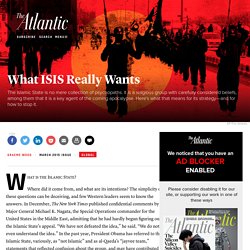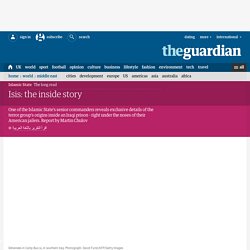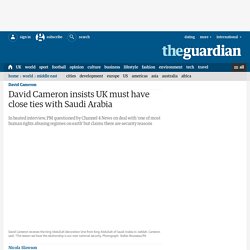

What ISIS Really Wants. What is the Islamic State?

Where did it come from, and what are its intentions? The simplicity of these questions can be deceiving, and few Western leaders seem to know the answers. In December, The New York Times published confidential comments by Major General Michael K. Nagata, the Special Operations commander for the United States in the Middle East, admitting that he had hardly begun figuring out the Islamic State’s appeal. “We have not defeated the idea,” he said. The group seized Mosul, Iraq, last June, and already rules an area larger than the United Kingdom. Our ignorance of the Islamic State is in some ways understandable: It is a hermit kingdom; few have gone there and returned. The Islamic State, also known as the Islamic State of Iraq and al-Sham (ISIS), follows a distinctive variety of Islam whose beliefs about the path to the Day of Judgment matter to its strategy, and can help the West know its enemy and predict its behavior.
But Adnani was not merely talking trash. I. What ISIS Really Wants. Isis: the inside story. In the summer of 2004, a young jihadist in shackles and chains was walked by his captors slowly into the Camp Bucca prison in southern Iraq.

He was nervous as two American soldiers led him through three brightly-lit buildings and then a maze of wire corridors, into an open yard, where men with middle-distance stares, wearing brightly-coloured prison uniforms, stood back warily, watching him. “I knew some of them straight away,” he told me last month. “I had feared Bucca all the way down on the plane. But when I got there, it was much better than I thought. In every way.” The jihadist, who uses the nom de guerre Abu Ahmed, entered Camp Bucca as a young man a decade ago, and is now a senior official within Islamic State (Isis) – having risen through its ranks with many of the men who served time alongside him in prison. The other prisoners did not take long to warm to him, Abu Ahmed recalled. Abu Ahmed was an essential member of the earliest incarnation of the group.
Abu Ahmed agreed. David Cameron insists UK must have close ties with Saudi Arabia. David Cameron has been questioned repeatedly on the UK’s close relationship with Saudi Arabia by Channel 4 News.

Asked by Jon Snow whether he had interceded with the Saudis over the planned execution of the Shia activist Ali Mohammed al-Nimr, Cameron admitted he himself had not raised the issue directly but the foreign secretary and the embassy had. He did however add: “I will look to see if there is an opportunity for me to raise it as well.” The teenager was arrested after taking part in Arab Spring protests in 2012, and has been sentenced to death by beheading, followed by crucifixion. In his first conference speech as Labour leader, Jeremy Corbyn urged Cameron to personally intervene in the case, and the prime minister subsequently said his message to the Saudi authorities would be: “Don’t do it.” Snow said: “This sounds a bit squalid for one of the most human rights abusing regimes on earth.” Snow continued to press him, asking three times why the deal was done. The Observer view on Britain’s unedifying alliance with Saudi Arabia.
Britain’s decision to join the Syria bombing has been welcomed by regional participants in the international coalition fighting Islamic State (Isis) terrorists, notably by the unelected rulers of Saudi Arabia.

But this close martial association with one of the world’s most repressive, undemocratic and frankly unpleasant regimes, notwithstanding a long history of bilateral ties, should not necessarily be welcomed by Britain. Speaking on Channel 4 News in October, David Cameron was pressed to justify his enthusiasm for the Saudi connection. “We have a relationship with Saudi Arabia and if you want to know why I’ll tell you why.
It’s because we receive from them important intelligence and security information that keeps us safe. The reason… is our own national security,” he declared, adding that a Saudi tip-off had helped foil a bomb attack in Britain during his premiership.